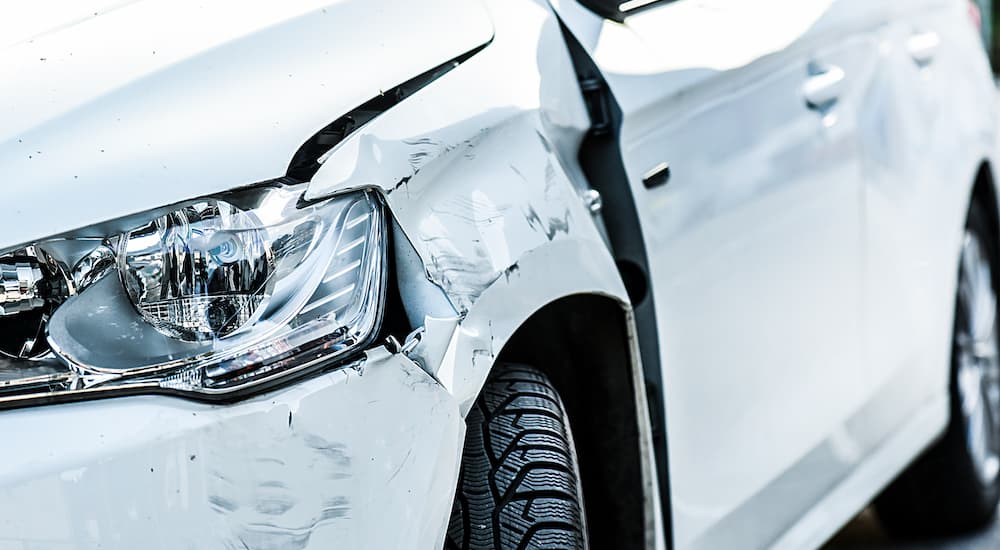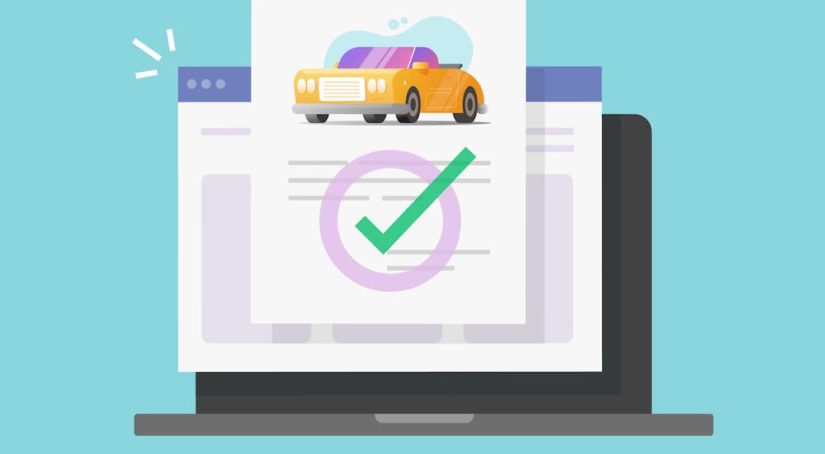If you are shopping for a used car, then you have probably heard of CARFAX or AutoCheck vehicle history reports. With the rise of the internet and online car shopping, third-party vehicle history reports have become an integral part of buying and selling used cars. On the surface, these reports are authoritative overviews of a car’s past, detailing who has owned it, where it has been, and what has happened to it. But while you should always pull the vehicle history report on any used car you are considering, you have to be aware that they are not quite as authoritative as they may seem. Vehicle history reports, no matter which company or agency provides them, are often missing important information and should only be one piece of evidence used when vetting a used car.

Why Should You Trust a Vehicle History Report?
Back in the day, all a buyer knew about the history of a used car was whatever the dealer or previous owner told them. Needless to say, this information was usually incomplete, if not an outright fabrication. Important details were often left out to make a car look better than it was, and when a vehicle passed through multiple hands, the seller might not even be aware of issues with the car. Third-party vehicle history reports got their start when CARFAX was founded in 1984 to provide an independent database that buyers could rely on to learn a vehicle’s history. The company named itself “CARFAX” because in the days before email, it faxed reports to buyers.
Because CARFAX is an independent company that makes its money from selling vehicle history reports, it has no financial incentive to mislead buyers about the condition of a vehicle. In fact, it is incentivized to dig up as much dirt as possible to convince buyers that its vehicle history reports are worth buying. To make sure its reports are as accurate as possible, CARFAX relies on information from over 112,000 sources across the United States and Canada. Those sources range from state DMVs and law enforcement agencies to local mechanics and auto auctions. All of that information is then compiled to produce a comprehensive account of a vehicle’s history.
The success of CARFAX encouraged the creation of other independent vehicle history reports, with AutoCheck becoming the other most trusted name in the industry. AutoCheck is owned by Experian, which gives it some insider access to insurance reporting, but it otherwise uses a similar methodology to CARFAX. The final vehicle history report that you will commonly see is NMVTIS (National Motor Vehicle Title Information System). Unlike the other two, NMVTIS is a government project run by the U.S. Department of Justice and relies solely on official reporting from federal, state, and local agencies.
There are also a few other free online services that can help you quickly determine if a used car is free of some major faults. The National Highway Traffic Safety Administration website has a tool that will allow you to check for any open recalls on a specific VIN. All recalls are reported, so this tool is comprehensive as well as easy to use. The National Insurance Crime Bureau (which is a non-profit, not a government agency) also has a quick VIN check tool that will check to see if a vehicle has been reported stolen or declared a total loss. Also, don’t be afraid to simply plug a VIN into Google and see what turns up–you can often uncover previous sales listings and more without paying a cent. Just be aware that none of these tricks are as comprehensive as a full third-party vehicle history report.
Why Shouldn’t You Trust a Vehicle History Report?
While the three big vehicle history report providers all seek to provide objective information to help the consumer, the simple truth is that they aren’t omniscient. None of the three providers directly inspect any vehicles, so if the information isn’t available through their sources, it isn’t included in their vehicle history reports. Unfortunately, that means that despite their best efforts, their vehicle history reports are nowhere near as comprehensive as you might be led to believe. How accurate a vehicle history report is will depend a lot on what sort of information you are looking for. Data such as the number of previous owners, salvage titles, and major accidents are generally rather reliable. Data such as maintenance histories and minor accidents are usually spotty at best.
The reason why not all the information on a vehicle history report should be given the same weight is because of how it is collected. The types of information included on a vehicle history report can be broken down into four main categories based on how the report provider collects the information.
Routine Government Reports – These are the most reliable pieces of information as they come directly from government agencies and are routinely collected. When a vehicle is sold, registered, inspected, or recalled, that is information directly provided by a government agency and can be trusted to always appear on a vehicle history report.
Major Incident Reports – When a vehicle is stolen, crashed, or declared a salvage title, it tends to generate police reports and insurance claims. Salvage yards are also legally mandated to report all vehicles they buy and sell. However, there is no guarantee that all major incidents will show up on a vehicle history report. Police reports are not always complete, and less reputable people may avoid reporting incidents for a variety of reasons.
Minor Incident Reports – If a car suffers minor damage in a fender bender or one-car accident, there is a 50/50 chance if it actually ends up on the vehicle history report. If the owner makes an insurance claim or files a police report, then it will usually appear. If not, then the only way it will show up is if the car is repaired at a dealership or mechanic that reports its work to the vehicle history report provider–and in that case, may only show up as simple maintenance rather than as an accident.
Routine Maintenance – Buyers will likely want to know what sort of maintenance has been performed on a used vehicle, but this is the spottiest part of any vehicle history report. The only way a report provider will learn about routine maintenance is if the vehicle is maintained in a shop that partners with the report provider. So if you see long stretches with no reported maintenance, it could mean that it was being maintained at a small shop, or it could mean no maintenance was being done at all.
The vehicle history report providers themselves acknowledge that their reports are not always perfect, but both CARFAX and AutoCheck provide a level of protection if you buy a vehicle history report that is missing important information. Both providers offer a buyback guarantee if you purchase a vehicle with a clean title and later discover that it was a salvage vehicle, suffered extensive damage, or has higher than reported mileage. However, these guarantees do have restrictions and will not help you if you purchase a vehicle with unreported accidents or other unknown damage that does not rise to the level of a branded title.

How Should You Use a Vehicle History Report?
Although a vehicle history report should never be considered the final say on the condition of a used car, it is still an incredibly valuable tool for car buyers. Perhaps the easiest way to use vehicle history reports is simply to ask if the seller has one. If they are willing to let you see it, then that is a good sign that they are trying to be above board. While a private seller may not be willing to pay for a vehicle history report, any dealership that will not give you one should probably be avoided. Most reputable dealers will link to a CARFAX or AutoCheck vehicle history report right on their online vehicle listing, allowing you to shop with confidence.
Once you have a vehicle history report for a car, read it thoroughly. Don’t just look at what is listed; look at what isn’t listed. Are there long stretches without reported maintenance? Are there any major scheduled services that should be there but aren’t? Can you figure out any driving habits of the previous owners, such as above average or below average mileage per year? Think of yourself as a detective putting together a profile of a suspect based on incomplete information rather than simply taking it all at face value.
Finally, don’t be afraid to confirm things from multiple sources. If the seller provides you with a CARFAX report, there is nothing wrong with pulling the CarCheck and NMVTIS reports for yourself. Spending a hundred bucks on vehicle history reports is not a bad idea before pulling the trigger on a several thousand dollar purchase. Most importantly, always inspect the vehicle before purchase. A vehicle history report is great for weeding out used cars you don’t want, but it is never a substitute for a trained mechanic putting the car on a lift and giving it a once-over.



